Month: January 2024
A busy cargo season begins for Valentine’s Day at the Quito airport
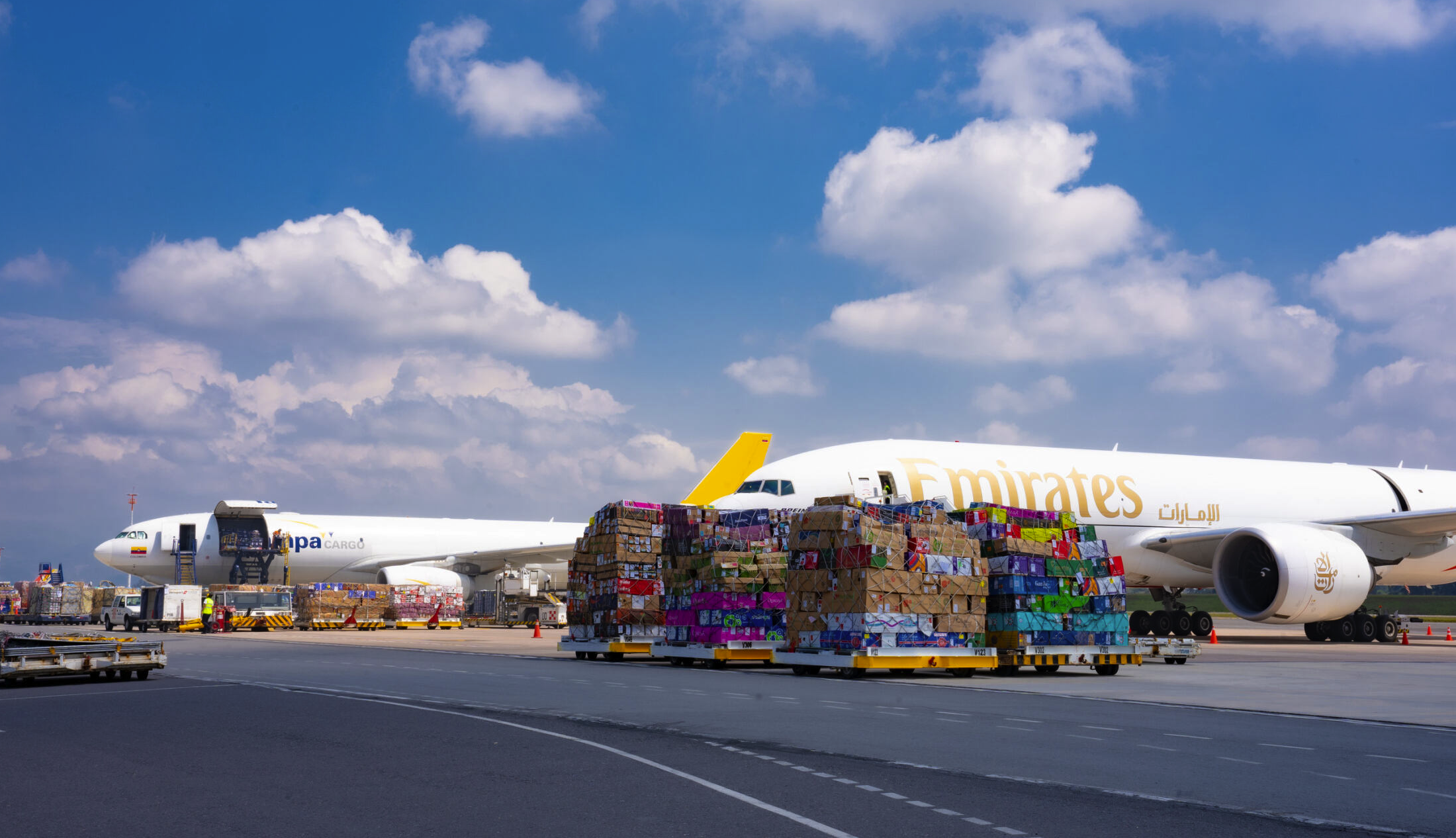
• Valentine’s Day is the highest cargo season at the Quito airport.
• The maneuvering area in the cargo apron as well as the palletizing area for cargo processing iwere expanded to provide a more efficient service.
• 92% of cargo transported from Quito airport is flowers.
Today the Valentine’s Day cargo season begins at the Quito airport, which will last until February 11, 2024. This period represents the most important phase of cargo operations at Quito Airport. To guarantee efficient service, significant improvements to thefacilities have been made.
Starting this season, the logistics process at the airport will be significantly optimized. Thanks to a strategic investment between companies specialized in cargo palletizing that operate at the Quito airport which include Novacargo, Servipallet, Pertraly and Novasan, the maneuvering area in the cargo apron and the processing area in the palletizers have been expanded. The expansion, which has added 2,880 square meters to the facilities, will enable much more efficient and comfortable cargo reception and processing.
With an extensive and cutting-edge infrastructure, and the operation of more than 15 cargo airlines, with flights between regular and charter, this year a growth in exported tonnage is expected for the Valentine’s season compared to the previous year, thanks to the increase in capacity offered by cargo airlines at the Quito airport.
“We maintain our commitment to the development of the air cargo industry in Ecuador. The expansions carried out and the strategic collaboration with palletizing companies are testimony of our dedication to facilitate airport cargo services in Mariscal Sucre. We are excited by the projected growth and we are confident that our airport will continue to play a fundamental role in this area,” said Ramón Miró, president and CEO ofQuiport.
At the international cargo terminal, four palletizing companies work, in charge of assembling the pallets of flower boxes according to the specifications of the aircraft in which they will be transported. These pallets are stored in cold rooms until they must be shipped to their destinations. In addition, the Mariscal Sucre airport has a logistics center where several cargo agencies carry out the consolidation processes of flowers from various producing farms.
Security measures adopted at the Quito International Airport
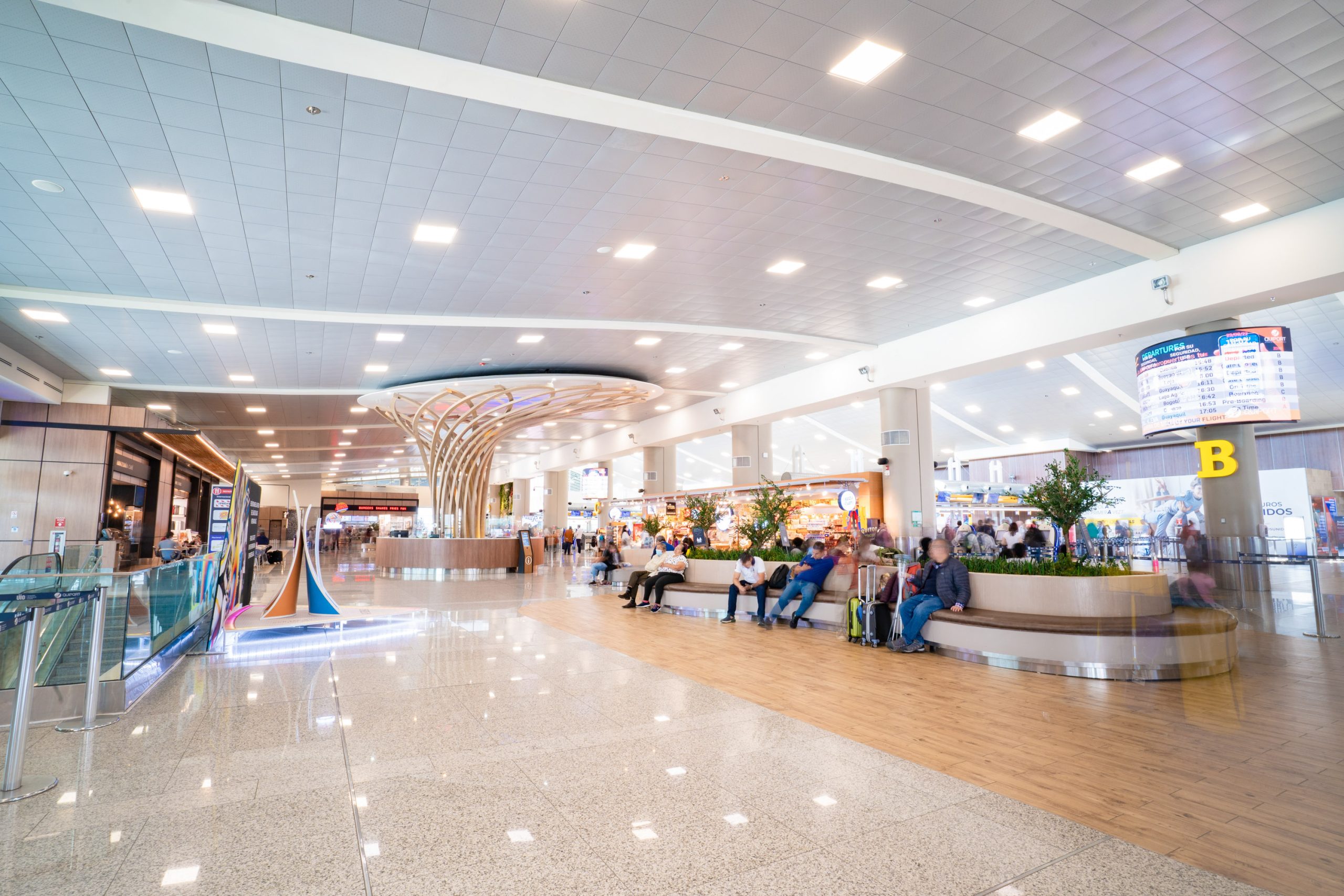
The Quito International Airport informs citizens about the measures
that have been defined to protect the safety of passengers, users, airport personnel, facilities
and air operations, in coordination with the National Government, the General Directorate of
Civil Aviation and the Municipality of Quito.
Airport operations remain open and the measures are as follows:
• Only passengers who carry their travel documents, that is, passport or citizenship card and
air ticket or boarding pass, will be able to access the air terminal.
• Family members or other visitors will not be allowed to enter the terminal to drop off or receive
passengers.
• Crowds of people will not be allowed on the sidewalks of the passenger terminal either.
• Control and screening of passengers and luggage will be strengthened.
• Random checks will be carried out on vehicles before entering the airport.
• Passengers are requested not to leave their belongings or hand luggage unattended.
We ask citizens to collaborate with these measures and passengers are recommended to go
to the airport with more time in advance considering these additional controls. We also
recommend that passengers stay informed through official channels and confirm the status of
their flights with their airlines.
During the curfew, travelers who must travel to and from the airport can do so with their travel
documents: passport or ID and air ticket or boarding pass.
Choice Cargo inaugurates MSC airline operations with charter flights at Quito airport
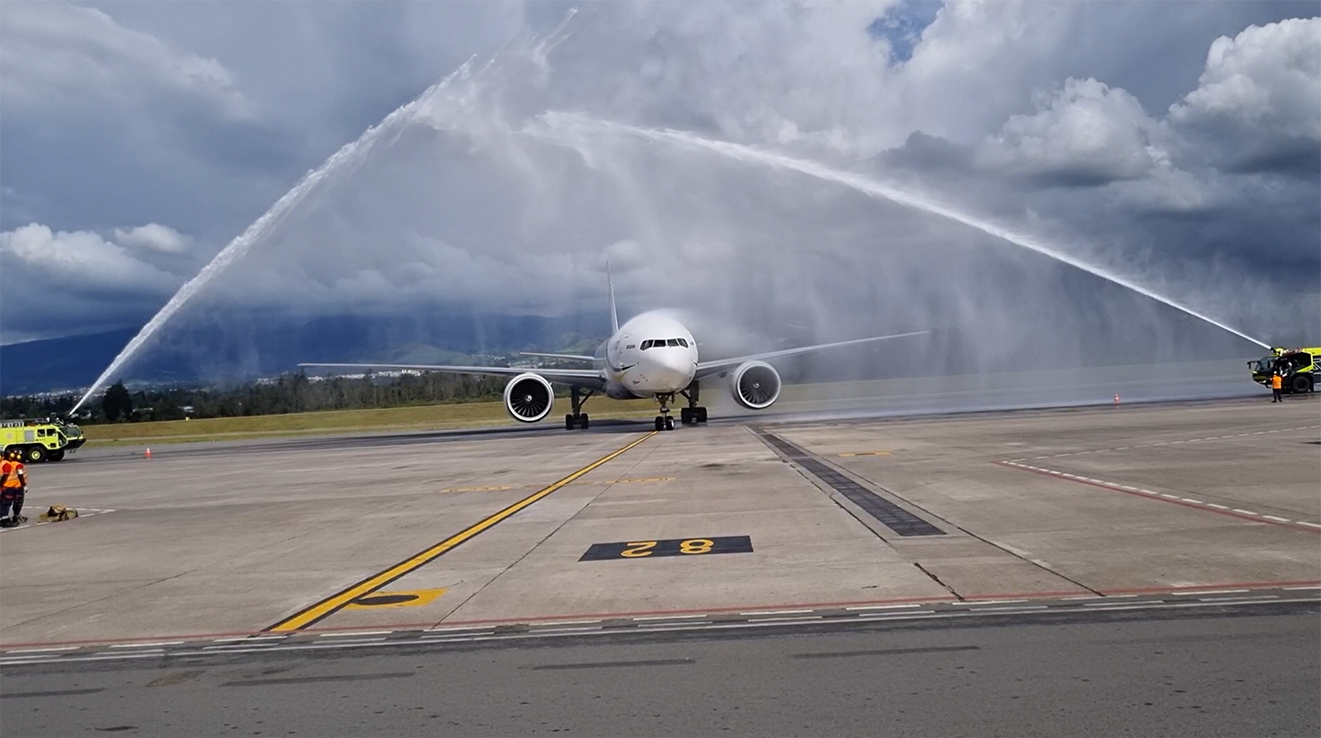
The firm Choice Cargo, General Sales Agent, commercial representative of the cargo airline Mediterranean Shipping Company (MSC), a world leader in cargo transportation, announced the start of operations at the Mariscal Sucre International Airport in Quito with the arrival of the first aircraft of the company. The company has established two weekly flights on Wednesdays and Fridays, operated with Boeing 777-200 aircraft with a cargo capacity of 85 tons to transport flowers especially from Quito to Miami, Liege and Amsterdam. The operation of the airline will make greater cargo transportation capacity available to exporters at a key moment such as the beginning of the Valentine’s season. Diego Íñiguez, CEO of Choice Cargo and MSC representative in Ecuador, said: “We thank MSC for allowing us to be part of this exciting journey. Together, we will offer unparalleled experiences to our customers. Today, we open a new chapter by providing innovative cargo services, connecting markets and strengthening our business relationships. “MSC will offer two flights per week, with the expectation of increasing this frequency in the near future.” Given the appreciated quality of the Ecuadorian flower in the international market, a growing need is identified to expand flight capacity, thus contributing to the development of exports.
In his intervention, Allan Padilla, Chief Operating Officer of Corporación Quiport, highlighted the constant rise of air cargo operations at the Quito International Airport. “With a record of 340 thousand metric tons transported in 2023, the airport is positioned as the main air cargo transport port in the country and occupies a prominent role in Latin America due to its annual cargo volume. “MSC Air Cargo’s initiative will provide exporters with additional cargo transport capacity, especially crucial at the start of the Valentine’s season.” In addition, he reiterated Quiport’s willingness to collaborate closely for the benefit of the productive sectors and the development of the city’s connectivity. The new operation will serve to increase the supply of capacity for the export of flowers and other products.
2023 marked the definitive recovery of aeronautical activity at the Quito airport
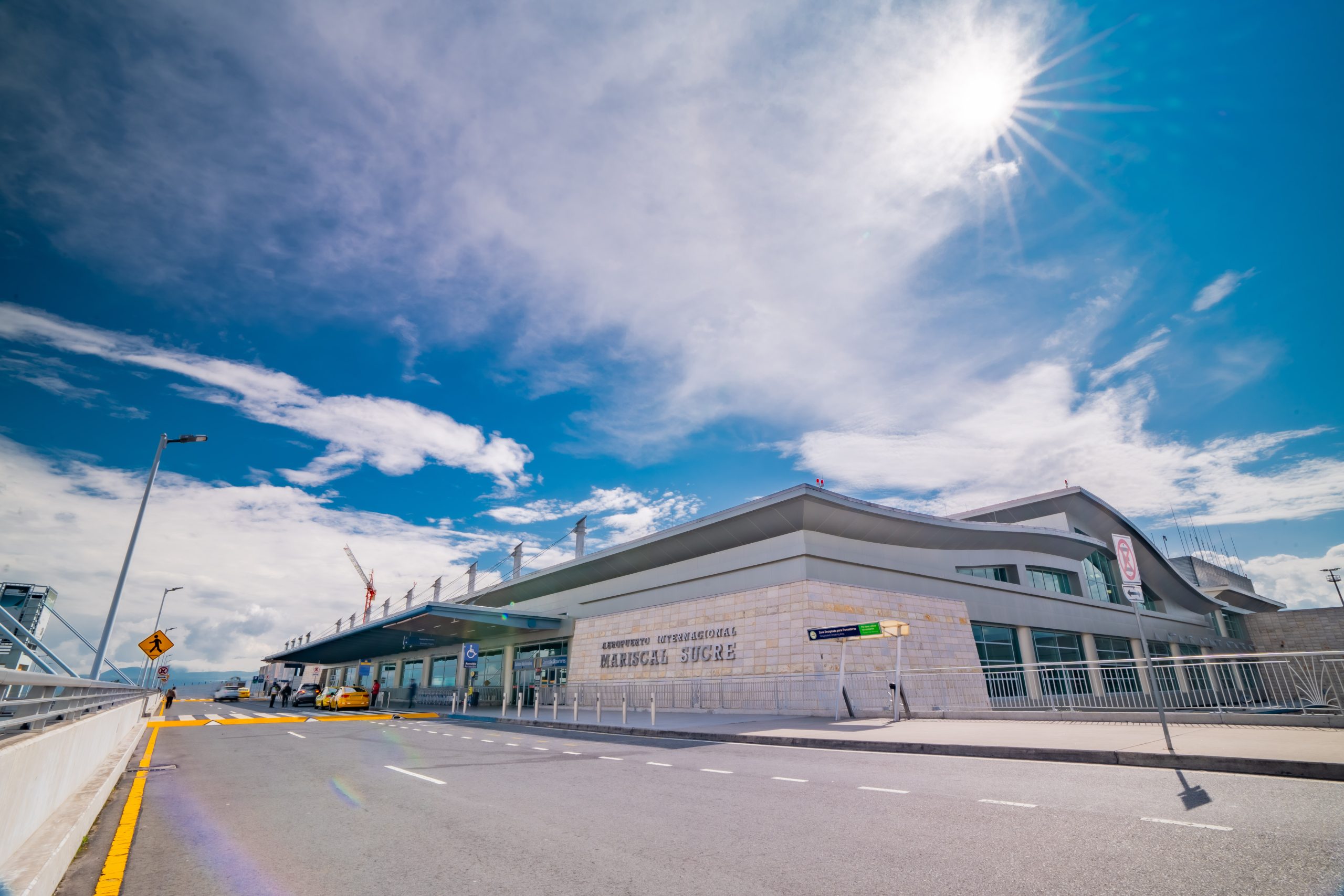
The Mariscal Sucre International Airport in Quito closed 2023 with figures and amanagement level that evidence the recovery of air transport service, after three years in which, Quiport and the entire airport community, worked to overcome the effects of the Covid-19 pandemic that began in 2020 which represented the largest crisis in the history of air transport on a global scale.
Passenger traffic in 2023 reached 5.4 million passengers, exceeding the 5 million passengers in 2019, the reference year before the Covid-19 pandemic. 15 passenger airlines serve 18 direct international destinations and 8 domestic destinations, maintaining Quito as the best-connected city in Ecuador.
In 2022, total passenger traffic reached 4.3 million, still suffering the effects of the pandemic.
In addition, in 2023 four new international direct routes were opened to Medellín, New York, Cancún and Orlando, expanding the offer of non-stop destinations from Quito. Similarly, there was also an increase in capacity either with more frequencies or using larger aircraft on already established routes.
The performance of connectivity growth is a demonstration of the confidence of the airlines in the city and in the management potential of Quiport at the Mariscal Sucre airport. This important growth would not have been possible without the joint work between the Metropolitan Public Airport Services Company (EPMSA), the Ministries of Tourism and Transportation and Public Works, the airlines, the Directorate of Civil Aviation and Quiport as a concessionaire, offering favorable conditions so the new routes can be sustainable from the beginning of their operation.
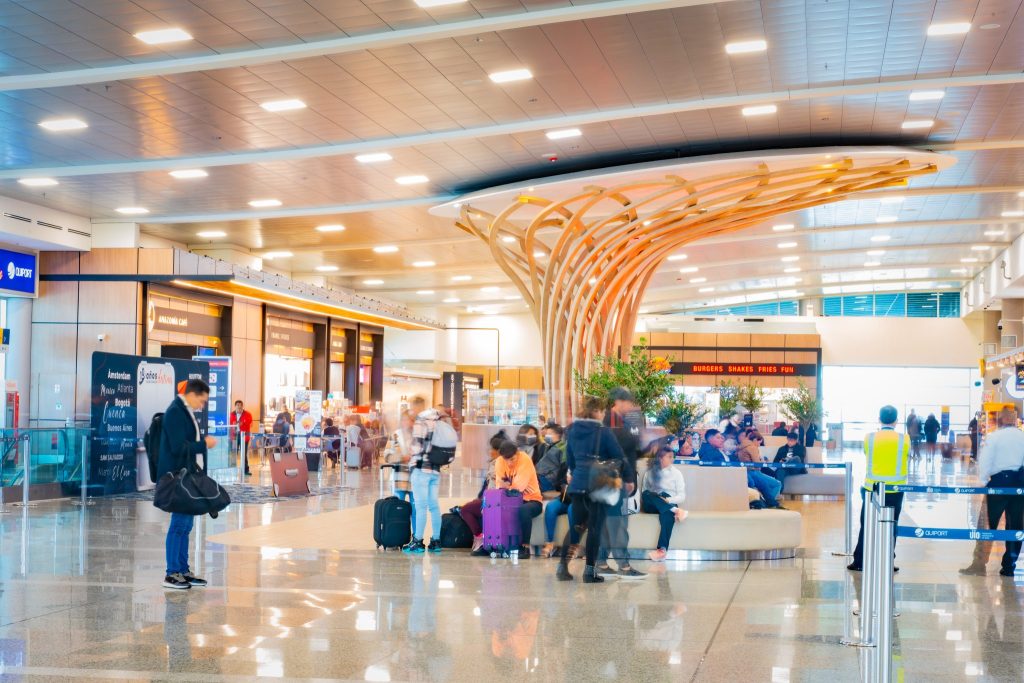
Air cargo maintains its growth trend
In air cargo, Quito airport broke its historical record. 340 thousand metric tons of export, import and national cargo were transported in 2023, exceeding the 243 thousand metric tons in 2019 and 289 thousand metric tons in 2022. Regarding exports, 282 thousand metric tons left from the Quito airport. 92% corresponds to flowers, the main export product by air.
“The teamwork that was deployed in 2023 by Quiport and the entire airport community has been the key to the recovery of passenger traffic and the growth of cargo handled at the Quito airport. If we have learned something good from the crisis caused by Covid, it has been to develop the ability to reinvent ourselves and adapt to circumstances in order to find new solutions of doing things in a good way and as a team,” explained Ramón Miró, president and general director. of Quiport Corporation.
Technological transformation and infrastructure improvements
The results achieved in the management of the Quito airport are complemented by the execution of improvement works in the facilities and a technological transformation project aimed at enhancing efficiency, safety and traveler experience.
In terms of technology, the Mariscal Sucre airport became the first in the country to implement biometrics in airport processes. The project incorporates biometric systems for immigration control in international arrivals thanks to a public-private cooperation with the Ministry of the Interior. It also includes boarding on Delta airline flights to the United States, directly connecting the airline’s databases with the information from Customs and Border Protection of the United States, being the first airport in Latin America to incorporate this technology. And finally, automatic doors for access to security filters, facilitating the control process carried out by EPMSA.
In terms of facilities improvements, 3,260 square meters of ceramic were replaced with granite in the airline check-in areas, entry corridors to security filters and the departure migration room. Added to this are projects to remodel the security filter area and the reopening of the children’s play area in the national pre-boarding area.
Also in 2023, we began expanding the domestic VIP lounge to double its capacity in order to maintain the quality standard in service to users of this space.
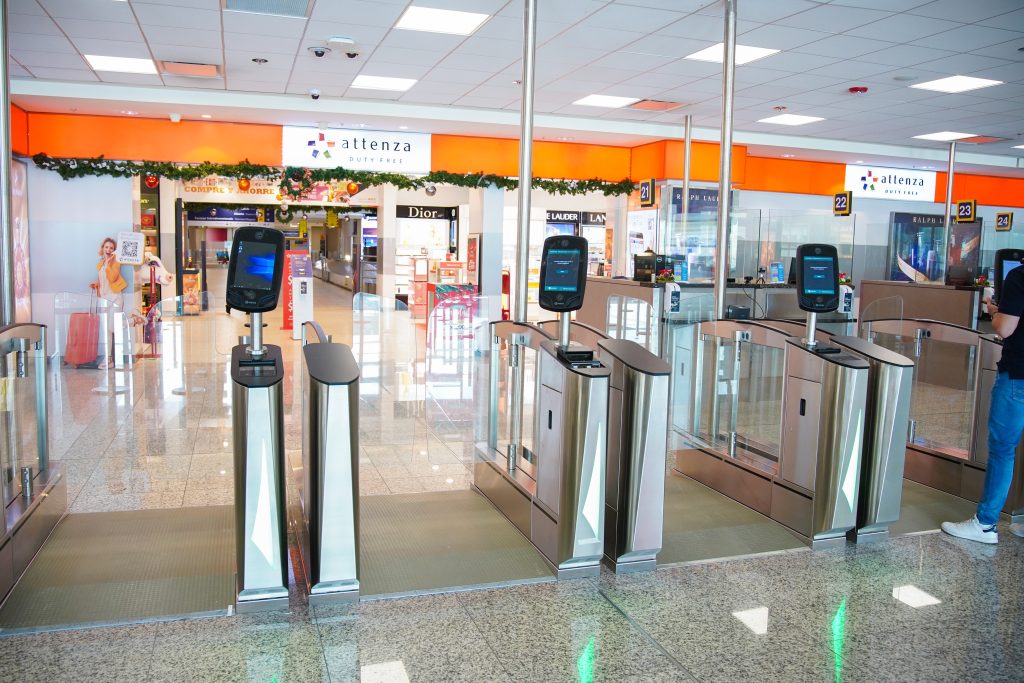
Awards
The above-mentioned results and the management deployed this year did not go unnoticed by our passengers and the air transport industry. Quiport and the Quito international airport received more than 15 national and international awardss and certifications, including the following:
•Best Regional Airport in South America, Cleanest Airport and Best Airport Staff, by Skytrax’s World Airport Awards program.
•Best Airport in Latin America and the Caribbean in the category of 5 to 15 million annual passengers, Cleanest Airport, Most Pleasant Airport and Most Dedicated Staff, by the Airport Service Quality program of the Airport Council International.
•Level 5 – the highest level in the Airports Council International Passenger Experience Certification program. Only the airports in Incheon (South Korea) and Quito (Ecuador) have reached level 5.
•Leading Airport in South America by World Travel Awards.
•Several awards and certifications in the environmental and social responsibility dimensions.
“All these management milestones ratify the leadership of Quiport and the Mariscal Sucre International Airport on a national, regional and global scale, and at the same time, allow the Quito airport to be projected into the future to overcome new challenges and achieve increasingly higher goals in connectivity, passenger service, safety, efficiency and contribution to development within a sustainable management framework. Great things await us in the future. 2024 will be a year in which we will have even more positive news for the airport, the city and the country,” concluded Ramón Miró.
